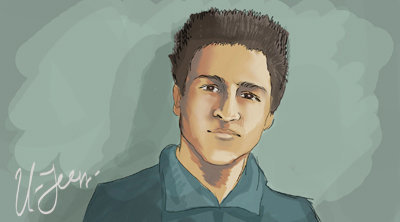MOSCOW, March 3 (RAPSI, Ingrid Burke) – Russian national Vladislav Miftakhov, a university student allegedly found with explosives in January, will be detained under US Marshal custody pending his upcoming trial, according to court documents filed Friday.
A magistrate judge held in February that Miftakhov should be granted pretrial release and authorized to live with his family in California while awaiting trial in connection with explosive devices allegedly discovered in his residence. The release order was stayed, however, pending the present appeal before the US District Court for the Western District of Pennsylvania.
In reversing the magistrate judge’s decision, US District Judge Kim Gibson considered four factors: the nature and circumstances of the charged offense, the weight of the evidence against Miftakhov, his background and such personal characteristics as his physical and mental health, and the nature and seriousness of the danger his release might pose.
With regard to the nature and circumstances of the charged offense, Judge Gibson asserted: “Thus, Miftakhov’s actions posed significant danger to himself, to the other individuals living in the apartment, and to the police officers who searched the apartment.”
The order went on to note that the early evidence gathered against Miftakhov has proven strong, weighing in favor of detention.
Considering his background and nature, the court noted that his Russian citizenship presented certain flight-risk difficulties. As stated in the order: “troubling is the fact that, although Defendant is a lawful permanent resident of the United States… he remains a Russian citizen. Though Miftakhov has voluntarily surrendered his expired Russian passport, the United States would be unable to prevent Miftakhov from acquiring a new passport from the Russian consulate and traveling outside the United States.”
The court further emphasized his history of illegal drug use and his admission to having manufactured explosive devices in the past, thus concluding that his background and characteristics weigh in favor of detention.
Regarding the potential for danger posed by his release, the court emphasized the fact that Miftakhov allegedly manufactured explosives in a residence shared with others, reasoning: “Few activities are more dangerous to life and property than the manufacturing and storing of explosive devices in a residential area.”
All things considered, Judge Gibson reversed the earlier decision that Miftakhov should be released pending trial, and ordered his detention under US Marshal custody.
The affidavit supporting his criminal complaint alleged that on January 24, law enforcement officers found a suitcase in Miftakhov’s room containing an aluminum object with an exposed fuse as well as a gas cartridge, also with an exposed fuse. Two days later, officers allegedly found in his residence a shell casing, inside of which was placed a handwritten scroll stating: “If you find this, you will never find me… by Vlaidslav Mikhailov.”
Prosecutors noted in a court filing that the back side of the note featured an A surrounded by a circle – a symbol resembling “that which was identified with the Anarchist movement.”
“Miftakhov indicated to law enforcement initially that he was making fireworks. However, Miftakhov later stated that he possessed the items because ‘he was going to blow things up,’” according to the affidavit.
Prosecutors appealed the magistrate’s release order, asserting: “The Defendant is a manufacturer of explosives and dangerous destructive devices, is a [Russian] national with minimal ties to the community, and has committed the offense after a questionable history which has resulted in the defendant’s current status on probation at the time of this offense.”
On February 18, Miftakhov’s court-appointed public defender, Christopher Brown, filed an opposition to the prosecution appeal striving to dispel the unflattering picture of the defendant painted by last week’s prosecution appeal.
With regard to Miftakhov’s stated intent to “blow things up,” the defense opposition argued: “The evidence presented at the detention hearing demonstrated the only ‘thing’ Mr. Miftakhov was interested in blowing up was dirt.”



